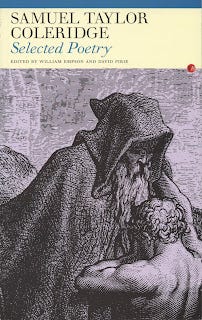Anoush Darabi: 244th Anniversary of Napoleon's Birth
15 August is the 244th Anniversary of Napoleon's birth.
Having missed the chance to write about the French Revolution for Bastille day,

Anoush Darabi is reading History
at Queens' College, Cambridge
the next obvious anniversary to mark is that of Napoleon's birth. Though poets flocked to celebrate the French Revolution, Blake, Coleridge and Wordsworth among them, few were so complimentary of Napoleon once he took power in 1799. Though support for the revolution had waned after the Terror of 1793-94, seeing thousands of killings, it could still tentatively at least be supported in principle, if not practice. This cannot be said of Napoleon, whose coup allowed many in Britain to support the war against France without losing face. This is not to say, however, that Napoleon had no artistic admirers.
In Germany at least Napoleon, in his lifetime and after it, was seen as a Romantic hero. Schlegel and other German romantics celebrated the French revolution and the liberty they hoped it would bring. Napoleon could easily be seen as the embodiment of its spirit, a first consul in the Roman mode, and superior to any monarch. Indeed Beethoven himself was an admirer of Napoleon, in his eyes a defender of the revolution's liberties, initially dedicating his third symphony to him. For many romantic writers and artists Napoleon was an the epitome of the heroic individual, a military genius bending European powers to his will, raw ability triumphing over old monarchies.
In 1804 news of Napoleon crowning himself Emperor of the French ended the hopes of many that he would bring liberty to Europe, likewise ending Beethoven's, and many others', willingness to champion him. Upon learning of the crowning Beethoven promptly tore up the title page of the third symphony dedicating it to Bonaparte; the hero formerly seen to uphold the rights of man now trampling them. He was not alone in changing his mind. Though Schlegel, Novalis and the early German Romantics could celebrate Bonaparte from afar, after his successful conquest of many German territories he became less an inspiration and much more an oppressor. It is difficult to extol the benefits of any imported liberty when accompanied by the plunder of crops, labour, soldiers and artwork.

Coleridge, Selected Poems
edited by William Empson
and David Pirie
While mainland Europe may have been slow to turn against Napoleon, in Britain poetic distaste emerged much more quickly. English romantics were already moving away from the extreme reason embodied in the revolution, Blake for instance rejecting the scientific, reason-obsessed method of thought which he believed to have limited British minds since brought in by Newton. If Napoleonic rule was the military export of reason and order, then many romantics wanted little to do with it. Coleridge was by this time developing a philosophy heavily influenced by German romantic thinkers, much more about safeguarding tradition and culture than overturning it.

Scott, Selected Poems edited by James Reed
Not all responses were as philosophical. 'Boney' quickly became a bogeyman to scare many young children and force them into obedience, and much poetry lampooning Napoleon, and his military efforts, was written. Bonaparte's letters, postures, battles and speeches could be and were inverted to great effect, often full of jingoistic national pride and biting humour. One such instance uses Hamlet's soliloquy to mock Napoleon's vacillation, 'To invade, or not invade', and Walter Scott describes him as a slave to ambition, willing to use any amount of violence to sate it.
One of the best examples is an anonymous response to 'the Corsican Chief's' jibe against the British, labelling them 'a nation of shopkeepers':
To Buonaparte
The English are nothing but a Nation of Shopkeepers
When the Corsican Chief, with a view to degrade,
Says, we're nothing but shopmen, and sneers at our trade:
Let none to the obvious assertion object,
Nor a charge contradict so extremely correct;
'Tis true, Buonaparte – and we wish you to know,
That the firm of our partnership's, one King and Co.
Tho' our first rate productions so oft you decline,
And always seem hurt when we send you a line,
Yet try us for once, we're quite ready to deal
With a capital stock of lead, iron, and steel,
And a warehouse long open'd, and constantly fill'd
With the choicest of Spirits, most ably distill'd,
Not smuggled from France, but, according to my sense,
Of full British proof, which we sell with a licence.
Should none of these articles prove to your liking,
We can shew you some others, tho' nothing so striking.
Perhaps you've a wish for our virgins and wives,
But these if we sell we must sell with our lives;
And as for our lives, Buonaparte, I much fear,
The price that we ask is a little too dear
Ten French for one English – we cannot abate,
So high are the duties they owe to the state.
These terms if you like, you are welcome to come,
Assur'd that you always will find us at home.
For the sale we're prepar'd – when you please we'll begin it;
Upon honour we serve, you shall not wait a minute.
'G. C.'
From The European Magazine, XLV (February 1804), p. 143
Anoush Darabi is reading History at Queens' College, Cambridge. He recently completed a work placement at Carcanet.
The Carcanet Blog Sale: Walter Scott and Samuel Taylor Coleridge
Every week on the blog, we offer 25% off a Carcanet title, or titles by a particular author or group of authors. The book(s) on offer will change each week, so watch this space!
This week, it's the Selected Poems of Walter Scott and the Selected Poems of Samuel Taylor Coleridge. Just go to www.carcanet.co.uk and use the offer code BLOG (case-sensitive) at the checkout. Remember, there's free UK delivery on everything!




